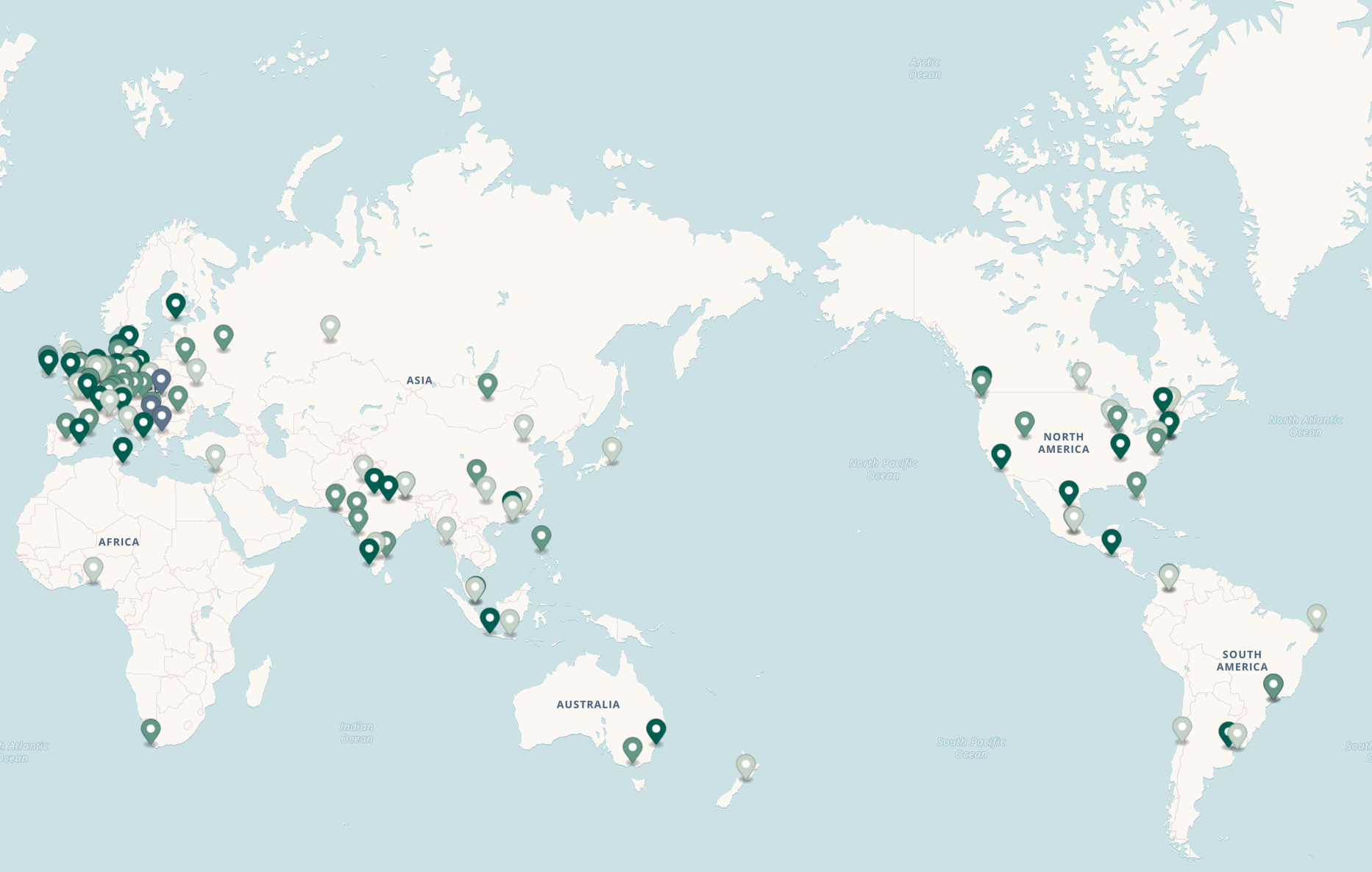Our Urban Sustainability Living Lab (USLL) acts as an exchange and communication platform for the sustainable development of cities. The USLL actively supports and shapes the transition to more sustainable urban societies. It integrates and offers access to knowledge that is co-creatively generated in research, teaching and in close exchange with a wide range of urban stakeholders.
The USLL is part of the Urban Studies working group at the Institute for Geography and Regional Research at the University of Vienna. The focus is on the analysis and design of interactions between social, ecological and technical processes in the city.
The city is viewed and understood as a system. The thematic focus is on urban sustainability transformations, urban social-spatial transformations, UN Sustainable Development Goals (SDGs), transdisciplinarity, smart and circular cities and urban ecosystem services.
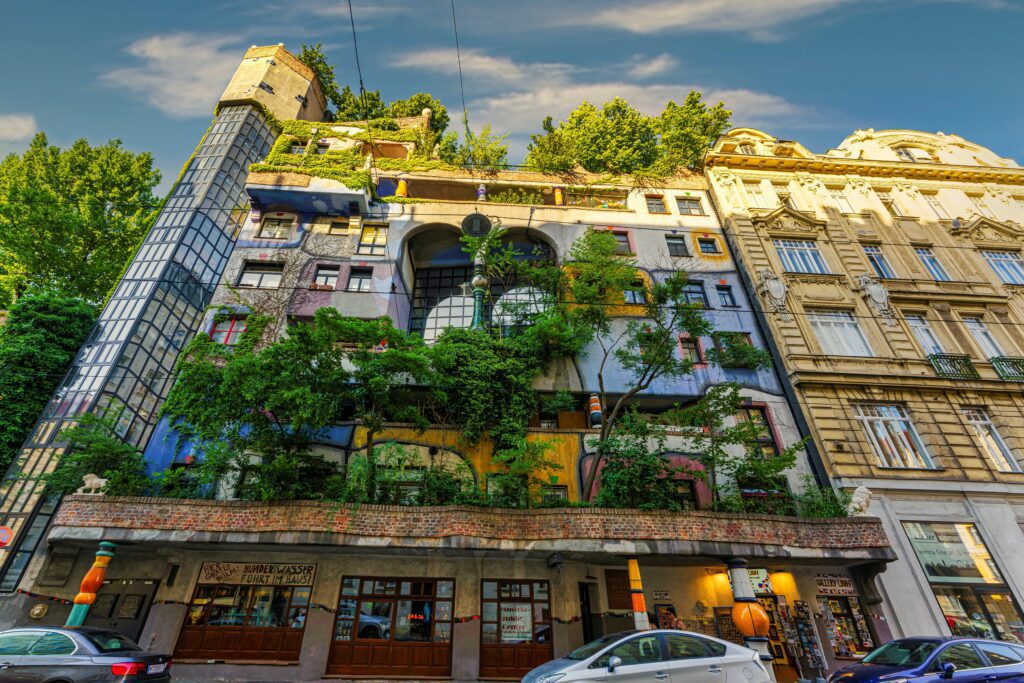
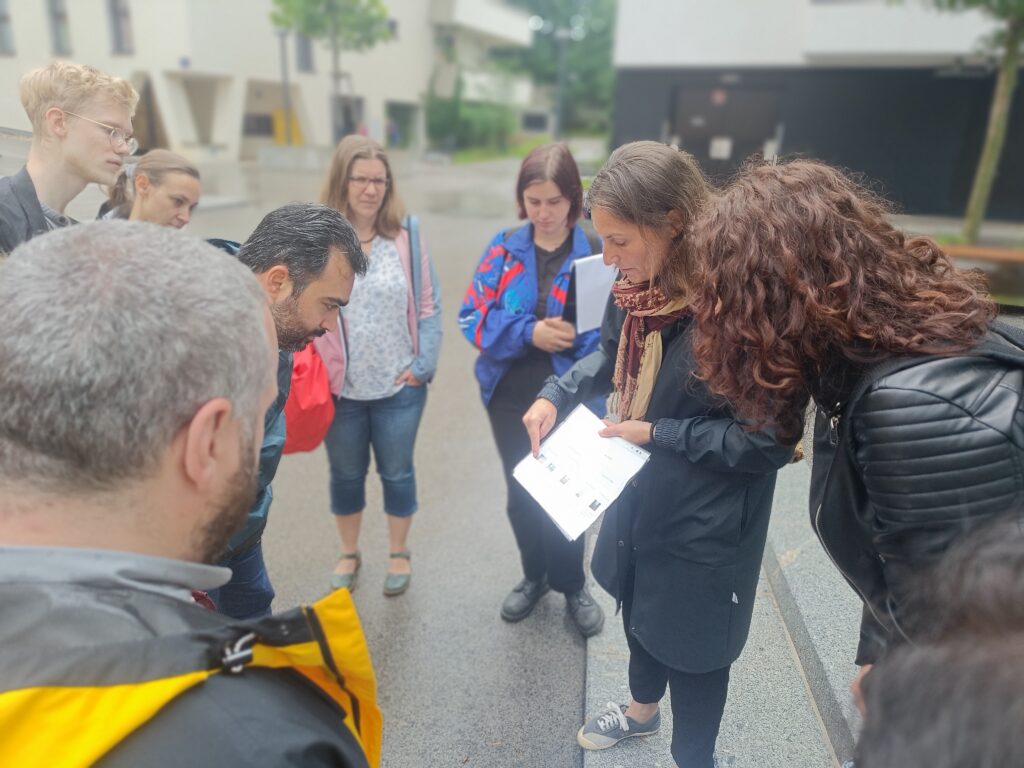
Together with a wide range of actors from the urban context, such as city administrations, private and non-profit companies and civil society, we develop integrative solutions for the development of sustainable urban societies. The focus is on context-specific challenges and the potential of cities to contribute to global sustainability. Both research and teaching are inter- and transdisciplinary. Comparative studies are carried out in European and Latin American cities.
The work of the USLL
The approach of the USLL is inter- and transdisciplinary. Interdisciplinary addresses the multi-layered human-environment-technology interactions in urban spaces by bringing together complementary scientific fields. Transdisciplinary means identifying and addressing real-world problems together with urban stakeholders from politics, administration, the private sector and civil society through co-creative and co-productive processes and activities. The methods and approaches required for this are constantly being developed in close interaction between research, teaching and practical application.
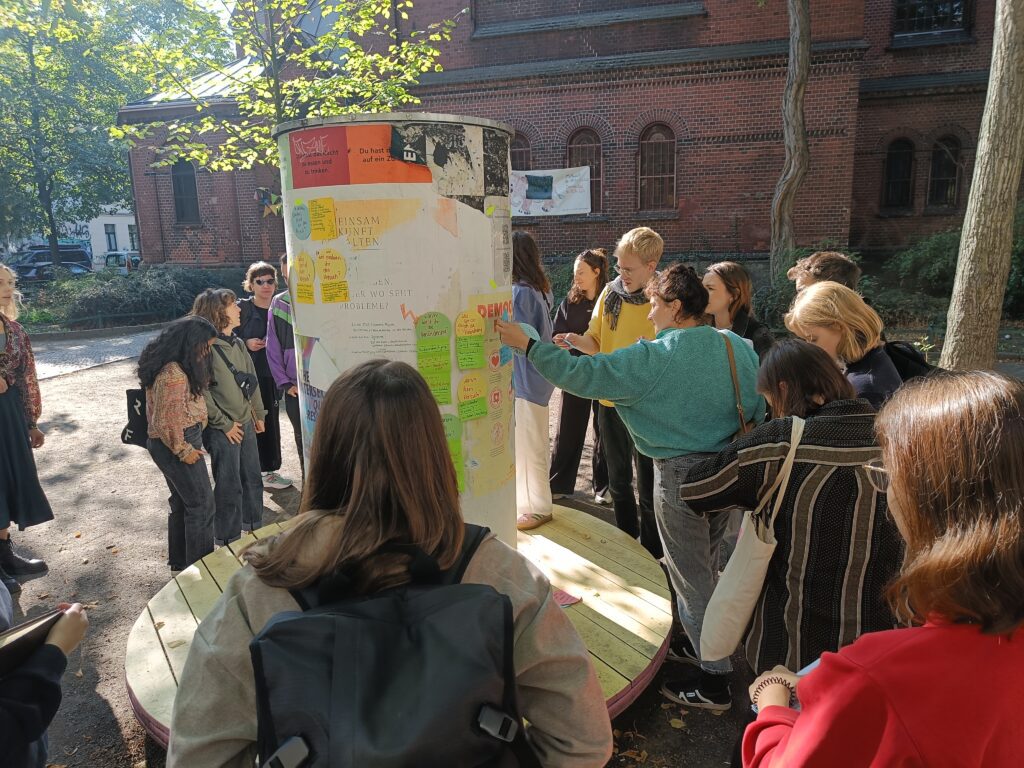
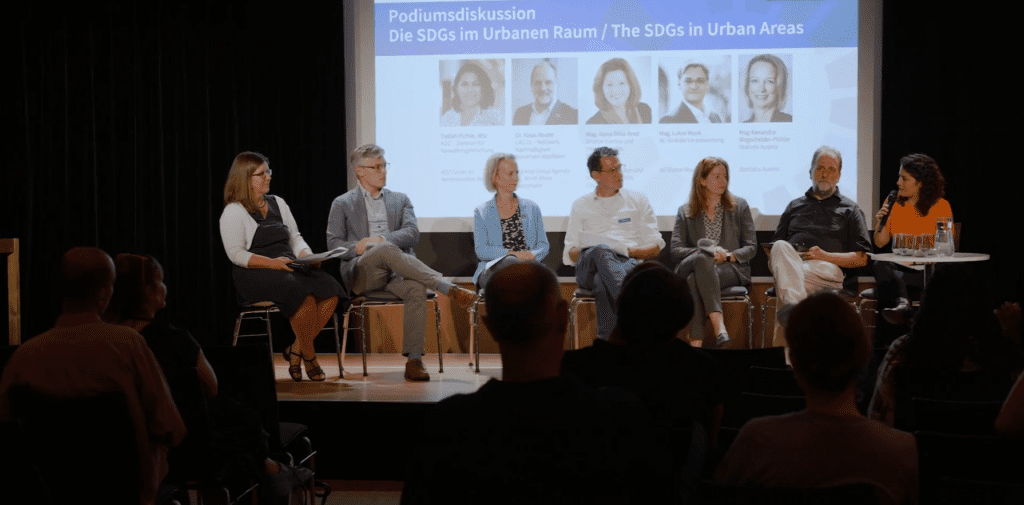
The focus of the USLL is therefore on networking, the mutual learning of actors and processes, and the development of concrete solutions. The USLL is based on the 17 Sustainable Development Goals (SDGs).
The USLL is implemented and further developed by the “Urban Studies” working group. It is an active knowledge platform at the Department for Geography and Regional Research at the University of Vienna (Austria).
USLL researchers work with students on the sustainability of cities around the world in various courses. This continuously updated map shows the cities that have been represented by students in the Erasmus Mundus Joint Master in Urban Studies (4CITIES) in recent years and were the subject of their sustainability analyses.
By clicking on the individual city icons on the interactive map, you can find out what the students have discovered about the current challenges facing cities, their transformation processes and the SDGs.
-
 November 25, 2025
November 25, 2025ZOE Stakeholder Workshop in Slovakia
On 13 November 2025, the first stakeholder workshop in Slovakia took place in Marianka, a small town near Bratislava. It was organised by ZOE researchers from the Biomedical Research Centre in Bratislava and the Slovak Academy of Sciences. Three of our ZOE staff members, Julia Wesely, Charlotte Tienes and Johannes Richter, were involved in both the preparations and the implementation on site. -
 November 14, 2025
November 14, 2025Future Urban Sustainability: Lessons Learnt from the SDGs and Perspectives for a Post-2030 Agenda
Kerstin Krellenberg and Julia Wesely edited a Special Issue in the Urban Planning Journal together with Florian Koch and Sarah Beyer from the University of Applied Sciences HTW Berlin. The Issue titled Future Urban Sustainability brings together diverse contributions to reflect on conceptual, methodological and practical barriers and advances in achieving the Sustainable Development Goals by 2030 and beyond. -
 October 31, 2025
October 31, 2025“People-Centred Smart Cities” in the focus of World Cities Day 2025
The motto of this year's World Cities Day on October 31st is "People-Centred Smart Cities". The aim is to highlight the potential of how data-driven decision-making, technologies and artificial intelligence can help improve life in cities. The focus is on smart city initiatives that put people first and integrate inclusion and accessibility.

